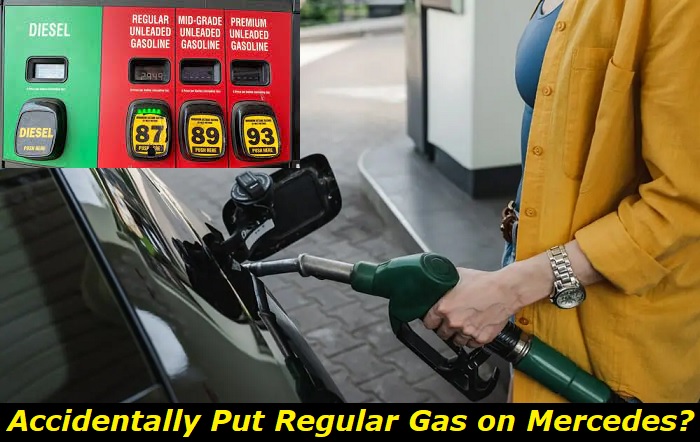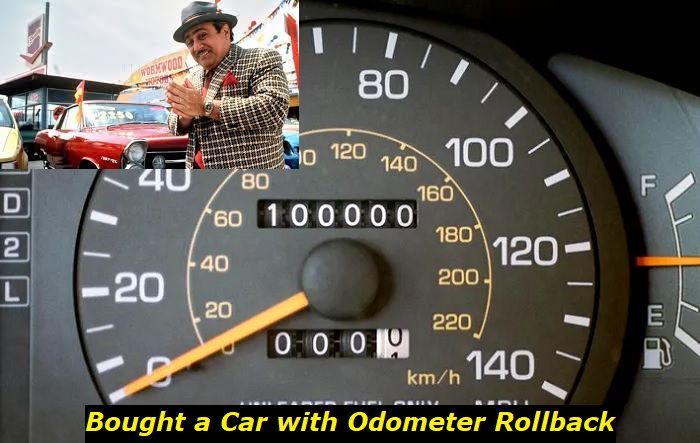When you purchase any Mercedes car, you already know it would require premium gas. Premium gas means having an Octane rating of 91. And this requirement goes for all Mercedes from units released in 1990 until today.
Engine use mistakes highlights
- Level of importance:important
- When done:just driving, DIY repairs, DIY maintenance
- Cost of mistake:$200 - $4,000
- How to avoid:read driver's manual, learn how to drive safely, use professional repair andmaintenance
- Consequences:fatal engine issues, expensive breakdowns
- DIY solutions:sometimes possible

Understanding the Mechanics of Mercedes Engines
Fortunately, Mercedes engines have sensors that can detect the type of gasoline filled into the tank. These sensors act timely to produce combustion.
For Mercedes engines, combustion should be fired on time for optimum performance. For this function, it needs high-Octane fuel so it can keep the horsepower level the engine needs and prevent pinging or knocking.
The problem with low-Octane-rated fuels is they may delay combustion, resulting in the knocking of engine parts. In cases where the sensors detect low Octane levels, the sensors will act accordingly and decrease the horsepower levels.
All modern Mercedes engines require 91 Octane for precision performance.
Fuel Stability Explained
What is Octane?
Octane rating is a measurement of the fuel's quality. Ideally, your fuel should burn with the engine and not during compression. It is a measurement of a fuel's stability.
A higher Octane level means better quality of fuel. A higher Octane level means a higher ability to withstand ignition during compression. Fuels with high Octane levels are much cleaner and contain additives that prevent building up carbon deposits in your engine.
There are three Octane levels measured in fuels sold in the U.S.
- Regular gas (87 Octane rating)
- Midgrade gas (89 to 90 Octane rating)
- Premium gas (91 Octane rating)
In these three, premium gas has more stability compared to the two. For this reason, Mercedes requires premium gas to avoid hurting your engine with fuel knocks.
Fuel knocking
When the pistons are moving, it compresses the fuel mixture simultaneously, generating a higher temperature. Timely combustion happens when the spark plug ignites the compressed air mixture. However, when fuel burns before it touches the spark plug, that is preignition. This time, you will hear audible knocks.
These knocks could hurt your pistons and cylinders if they happen frequently.
Don't confuse Detonation with Preignition
Detonation and preignition are often confused as to be the same culprit for engine knockings. However, these two occurrences are different things.
Preignition happens when fuel prematurely burns before the spark plugs ignite them. Detonation occurs when there is a spontaneous explosion or combustion of the remaining fuel charge in the chamber after the spark plug ignites.
A normally ignited fuel mixture by the spark plug would have a timely drop of the piston over the Top Dead Center (TDC), resulting in optimal fuel combustion and engine performance. However, when carbon deposits have significantly built up in the chamber due to the long-term use of regular gas, it will encourage detonation.
How the Premium Gas Works on Mercedes?
Mercedes engines run at high temperatures to maximize their performance. Their engines require special attention and maintenance. Also, their specialized engines generate high compression, so it needs premium gas.
Mercedes has specialized engines with sensors that direct the engine to have a timely firing sequence. The firing can generate high temperatures and cause higher pressure. A more stable gas is difficult to ignite and can hold longer when compressed before the ignition from spark plugs. For this reason, Mercedes engines need the stability of premium gas.
The idea is to avoid ignition during compression. Because when it does, it causes pinging or audible knockings or fuel burning in the wrong parts of the vehicle that are harmful to the engine parts.
What Happens if You Put Regular Gas on Mercedes?
If you do it once or twice, nothing much will change except for reduced performance. You only have to fill it up with unleaded premium fuel on your next top-up, and everything should return to normal.
However, the case will be different for the long-term use of unleaded regular gas.
1) Reduced Performance
The sensors will respond according to the Octane rating detected. This ability is available for Mercedes engines, so they can perform accordingly. And firing can happen at the right time.
You use high Octane level fuel so the piston places at the right spot- a high spot and at the right time during the explosion. However, the piston cannot do this right when you top it up with low-Octane fuel. The engine's computer holds down the spark plug firing a bit longer when it detects pre-detonation knocks. It commands the delay so the piston will have enough time to get up to the highest spot to perform a timed explosion. And there you have it, your acceleration has slowed down.
2) Decreased mileage
Explosions happening when the piston is not at the right height create a not-so-strong acceleration. With these detections of pre-detonation activated, the fuel doesn't burn entirely, resulting in less power and less mileage.
3) Engine knocking
Octane 91 is primarily designed to reduce engine knocking. Premium gas encourages smooth and timely combustion, preventing engine knocks.
But consistent use of regular gas causes the engine to fire quickly, encouraging preignition. Premature combustion of air mixture before spark plug ignition cause knocking. On your first two tops up with regular gas, you may not notice all these occurrences. But continuous use would encourage early firing.
With low-Octane fuel, you are risking your chamber to accumulate carbon deposits that encourage detonation.
Imagine how much your expensive Mercedes suffers with frequent knockings. It's like continuing a bad habit that leads to a serious condition, like having damaged components.
4) Damaged components
Here is what consistent knocking can do to your engine components. Detonation causes the following:
- Scuffing of the cylinder bore
- It can bend connection rods.
- Break the piston head and rings
- The valves could melt.
- The cylinder could wear out.
- It may damage the spark plug.
5) Void Warranty
If you've been trying to save money for regular gas, you'd likely spend more after your warranty has been void. Intentionally using regular gas after being advised numerous times in the owner's manual is a form of neglect.
You will find a statement in the additives section of the warranty form, voiding it for malfunctions and damages as a result of using poor fuel quality.
On their owner's manual and warranty form, here's what you should remember when using the wrong fuel.
- The only proper fuel for the engine is unleaded premium fuel.
- A low-level Octane rating means improper fuel used.
- Any damage caused by using improper fuel will void your warranty claims.
That means shouldering all the expenses for replacing worn-out cylinders, valves, spark plugs, and piston components. Not only they will not cover the expenses for the replacement, but for the entire repair, it needs.
What Should You Do if You Put Regular Gas on Mercedes?
Luckily, your first full tank of regular gas will cost only your next premium gas refill.
Here's what you should do on the first liters of regular gas you put in your tank.
- Fill it up with premium gas on your next top-up. Or as advised by Mercedes, fill it up with premium gas immediately. This remedy is only for accidentally filling up regular gas with a few liters.
- Drive your Mercedes gently. Avoid loading your vehicle heavily if you are driving with premium gas. Avoid driving at full throttle and accelerating abruptly like how you do with premium gas.
- Monitor your speed and keep it at 3000 RPM if riding with two persons or having a light load.
- Keep your accelerator pedal at a 2/3 maximum if you drive on challenging terrain or are heavily loaded.
Now, if you have long been using regular gas on your Mercedes, brace yourself.
Final Thoughts
While it seems like a good idea to save a few bucks from fuel, it is not a good one for owners of Mercedes cars. Spending highly on a Mercedes unit does not stop on the purchase. Maintaining, driving, and keeping it in good condition is also expensive.
The best way to minimize future repairs and costly labor is to use it as advised, including your fuel top-up. When you own a Mercedes, you know you'd have to use premium fuel for its lifetime. Such a car is made with great engineering. So, it takes some good maintenance to use the intended fuel for its engine.
Besides, you can only enjoy its maximum performance with premium fuel. So, on your next top-up, check the nozzles and label well!
About the authors
The CarAraC research team is composed of seasoned auto mechanics and automotive industry professionals, including individuals with advanced degrees and certifications in their field. Our team members boast prestigious credentials, reflecting their extensive knowledge and skills. These qualifications include: IMI: Institute of the Motor Industry, ASE-Certified Master Automobile Technicians; Coventry University, Graduate of MA in Automotive Journalism; Politecnico di Torino, Italy, MS Automotive Engineering; Ss. Cyril and Methodius University in Skopje, Mechanical University in Skopje; TOC Automotive College; DHA Suffa University, Department of Mechanical Engineering






Add comment